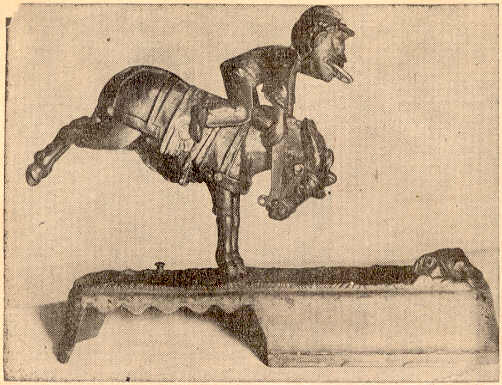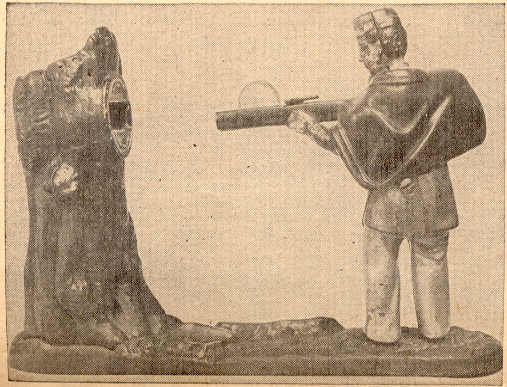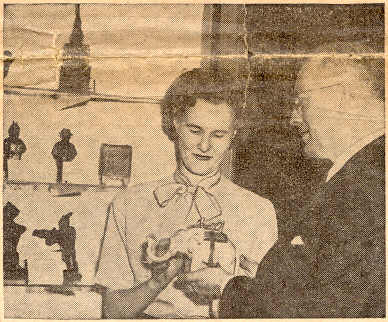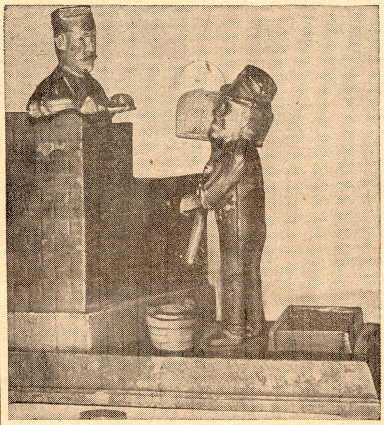|
NEW YORK SUN, April 17, 1946
Savings Official Loses Money in Banks
These are
some of the 100 mechanical children's banks in the Franklin Society
This soldier takes his aim and shoots that nickel into the hollow tree trunk.
Itís Childrenís Mechanical Depositories, Circa 1900, That Rob Him Robert J. Christensen, assistant secretary of the Franklin Society for Home Building and Savings at 217 Broadway, has kissed good-by to more coins of a small denomination lately than he ever thought would be possible in the interest of savings. Christensen, in charge of the institution's collection of close to a hundred mechanical children's banks, circa 1900, has so many requests from curious spectators who want to know how they work that he's bereft of small change practically all the time. "I've lost more money to these darned things," he explained today, laying a nickel on the nose of an iron bulldog with an enormous red collar. Christensen pulled the dog's tail and the coin promptly dropped into its mouth. "There," he said, "that's gone for good." The bank's official admitted, however, that he is sort of fascinated himself with the intricate workings of the items in the collection, which number approximately 85 in perfect working condition, plus quite a few which are in the process of repair. Wide Range of Ingenuity.
The banks, most of which are made out of
cast iron and operated by levers or releases, cover a variety of subjects,
guaranteed to tax the imagination of childhood. Prospective depositors are
lured by everything from an Indian shooting a coin into a bear's chest to a
dog which pops out of a kennel and chases a small boy caught in the act of
stealing a watermelon. Patriotic and Political Types.
On the patriotic side, there is Uncle Sam,
replete with whiskers and an umbrella, and whose carpet bag opens as he
lowers his arm to deposit the moola, while an early repository with a
political flavor is one called "Tammany," in which a bloated gent in a
yellow vest casually flips a coin into his coat pocket.
"No
comment," said Christensen.
William J.
Dwyer, president, of the firm, shows Norma Dadswell
The mason here leans on the wall and lays a brick as the hod-carrier dumps his coin. |




